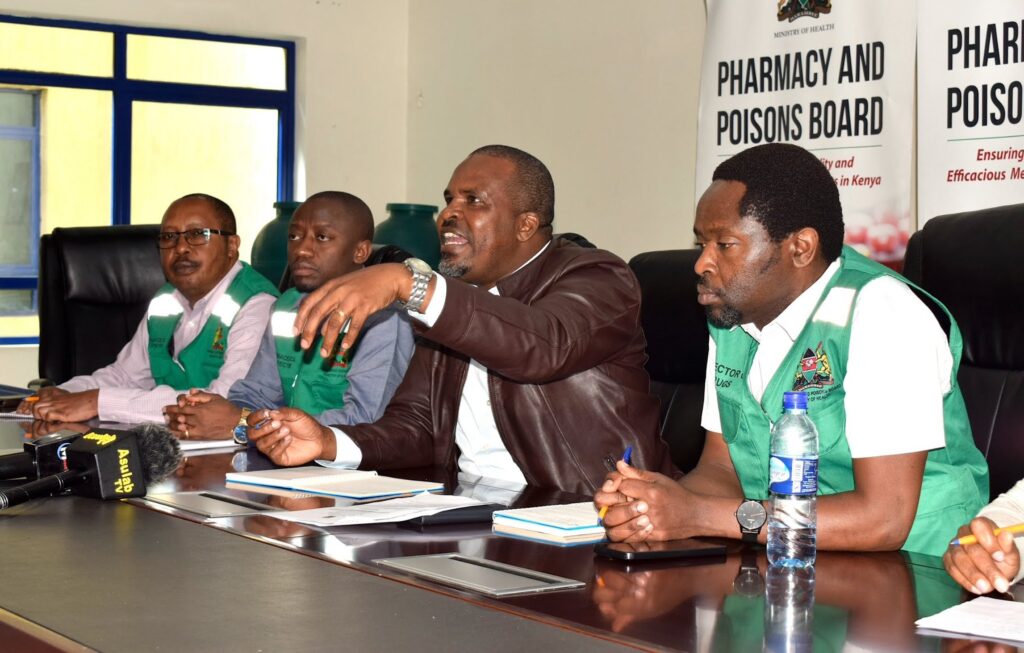Once again the Pharmaceutical dealers have found themselves on the wrong side of Auditor General Nancy Gathungu over audit irregularities orchestrated through their dubious acts in the distribution line, prompting the Pharmacy and Poisons Board (PPB) to issue a warning to the distributors after a recent audit revealed widespread ethical breaches in Kenya’s drug supply chain. The audit, which spanned both private and public hospitals, exposed cases of unlicensed pharmacies receiving drugs, unregistered personnel handling medications, and unapproved vehicles transporting pharmaceuticals.

Pharmacy and Poisons Board members.Courtesy photo
Senior Inspector Julius Kaluai stated that while most wholesalers are licensed, many fail to follow required distribution practices. “Some wholesalers have registered their outlets but changed their locations without informing the board,” Kaluai noted, adding that this lack of communication hampers inspections and heightens risks to public safety. The audit highlighted that matatus and lorries, many of which lack proper licensing, are commonly used to transport medicines, violating established guidelines.
The PPB also revealed that many personnel in charge of distributing medication are unqualified, raising concerns about the safety of the medications available to the public. In several cases, registered pharmacists were found delegating tasks to unregistered individuals after picking up the drugs. “We have illegal wholesalers, which is a very serious area now under focus,” Kaluai said.
James Gathongo, PPB’s central regional regulatory coordinator, stressed the need for qualified personnel in hospitals to ensure patients receive appropriate medication. “Private hospitals should comply with the ministry’s staffing norms,” he emphasized.
Starting in 2025, hospitals must have licensed pharmacists oversee drug distribution, with enhanced scrutiny on supplier verification. Regulatory officer Muiname Kamau affirmed that all aspects of the distribution chain, from manufacture to delivery, must comply with regulations. The board intends to submit at least 20 cases involving these violations to the Office of the Director of Public Prosecutions for further action.
The PPB’s strengthened oversight aims to address growing public concerns over counterfeit and substandard medications and to enforce strict adherence to distribution standards.